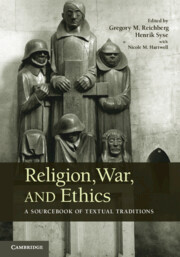Book contents
- Frontmatter
- Contents
- Notes on Contributors
- Preface
- Introduction
- 1 Judaism
- 2 Catholic Christianity
- 3 Eastern Orthodox Christianity
- 4 Protestant Christianity
- 5 Sunni Islam
- 6 Shi‘ite Islam
- 7 Hinduism
- 8 The Buddhist Traditions of South and Southeast Asia
- 9 Chinese and Korean Religious Traditions
- 10 The Religious Traditions of Japan
- 11 Sikh Tradition
- Index
- References
11 - Sikh Tradition
Published online by Cambridge University Press: 05 June 2014
- Frontmatter
- Contents
- Notes on Contributors
- Preface
- Introduction
- 1 Judaism
- 2 Catholic Christianity
- 3 Eastern Orthodox Christianity
- 4 Protestant Christianity
- 5 Sunni Islam
- 6 Shi‘ite Islam
- 7 Hinduism
- 8 The Buddhist Traditions of South and Southeast Asia
- 9 Chinese and Korean Religious Traditions
- 10 The Religious Traditions of Japan
- 11 Sikh Tradition
- Index
- References
Summary
Sikhism originated with the religious sage Guru Nanak, who was born in Punjab in 1469 and died in 1539. Guru Nanak founded what is often known in India as a panth, that is, a path to religious realization, a new religious movement. Nanak was followed by nine Sikh gurus, the last of whom was Guru Gobind Singh, the founder of the Khalsa, or the community of the pure (baptized Sikhs). The communal religious life of the Sikhs takes place in houses of worship called gurdwaras (literally, “the Guru’s door”), and it centers on the sacred book called the Guru Granth Sahib, which was compiled in the late 1600s. In modern times, Sikhism has spread to many parts of the globe through migration, and Sikhs have made visible cultural contributions to societies on most continents.
Introduction
The focus of Sikhism is a belief in God, called The Timeless One (Akal Purakh). Sikhs believe that God is the creator and sustainer of the universe and that God is immanent in all of creation. As an Indian religion, Sikhism affirms transmigration, the continued rebirth after death of some essential part of living beings. The goal of Sikhism is to achieve union with God through meditation on the divine name (nam), which is the eternal presence of God in creation. If human beings devote themselves to rememberance of the divine name (nam simaran), they will achieve complete peace in their union with God and thereby stop the painful cycle of rebirth. Guru Nanak was followed by nine other gurus. The tenth, Guru Gobind Singh, died in 1708 during a period marked by clashes with the armies of the Mughal Empire. Two of the texts included in this chapter are authored by him, according to the Sikh tradition.
- Type
- Chapter
- Information
- Religion, War, and EthicsA Sourcebook of Textual Traditions, pp. 672 - 700Publisher: Cambridge University PressPrint publication year: 2014
References
- 1
- Cited by



